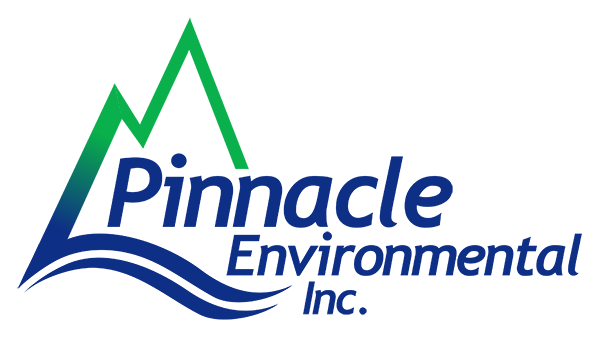Environmental, Social and Governance Reporting
Environmental, Social and Governance (ESG) Reporting
Environmental, Social, and Governance (ESG) reporting is a comprehensive framework that enables organizations to disclose their impact in key areas related to sustainability and responsible business practices. This transparent reporting practice allows stakeholders, including investors, customers, employees, and regulators, to assess the company’s commitment to environmental preservation, social responsibility, and ethical governance. By quantifying and disclosing ESG metrics, businesses can showcase their efforts to address pressing global challenges while fostering greater accountability and driving positive change in the corporate world.
What are the environmental aspects of ESG reporting?
The environmental aspect of ESG reporting focuses on assessing a company’s impact on the natural world and how it manages its environmental resources. It involves quantifying and disclosing data related to the company’s environmental performance, practices, and initiatives. Some key components of the environmental side of ESG reporting include:
-
- Climate Change and Greenhouse Gas Emissions: Companies are expected to report their greenhouse gas emissions, both direct and indirect, and set targets to reduce their carbon footprint. They may also disclose their strategies for transitioning to low-carbon and renewable energy sources.
- Energy Efficiency and Consumption: Reporting on energy usage, energy efficiency measures, and efforts to reduce energy consumption plays a crucial role in assessing a company’s commitment to sustainable practices.
- Water Management: In drought-stricken regions, environmentally conscious Companies and municipalities seek to proactively manage and disclose their water usage, water efficiency measures, and plans to manage water-related risks.
- Waste Management: ESG reporting may include information about waste generation, recycling, and waste reduction efforts, and hazardous waste management practices.
- Biodiversity and Conservation: Companies operating in sectors that impact biodiversity, such as agriculture or construction, may disclose their efforts to protect and preserve biodiversity and ecosystems.
- Pollution and Emissions Control: ESG reporting may cover the company’s strategies and technologies used to minimize air, water, and soil pollution.
- Environmental Certifications and Standards: Companies may report on their compliance with environmental regulations and certifications, such as ISO 14001 (Environmental Management System).
- Supply Chain Sustainability: Reporting may also extend to the environmental performance of suppliers and partners to assess the overall supply chain’s sustainability.
By providing transparent and comprehensive data on these environmental aspects, companies demonstrate their commitment to reducing their environmental impact, complying with regulations, and contributing to global sustainability goals. Such reporting not only builds trust with stakeholders but also fosters a culture of environmental responsibility and innovation within the corporate world.
How has ESG been implemented globally?
ESG reporting has gained significant momentum worldwide as companies and investors recognize the importance of sustainable and responsible business practices. While ESG reporting is not yet standardized globally, many countries have implemented or proposed regulations to encourage and require companies to disclose their ESG-related information. The following is an overview of ESG reporting globally:
- European Union:
- Corporate Sustainability Reporting Directive (CSRD), which will amend the existing Non-Financial Reporting Directive (NFRD) which requires large public-interest entities with over 500 employees to disclose non-financial information, including ESG aspects, in their management reports.
- Sustainable Finance Disclosure Regulation (SFDR): Sets out disclosure obligations for financial market participants and advisors to integrate sustainability risks in their investment decision-making processes.
- United Kingdom:
- Companies Act 2006: Requires larger companies to disclose non-financial information, including environmental and social matters, in their annual strategic reports.
- Streamlined Energy and Carbon Reporting (SECR): Mandates certain UK companies to report their energy use, greenhouse gas emissions, and energy efficiency measures.
- Energy Savings Opportunity Scheme: Requires large companies to perform energy savings assessments every four years including auditing their total energy consumption, identifying potential areas where savings can be made, and reporting these results.
- Japan:
- Stewardship Code and Corporate Governance Code: Encourage institutional investors and companies to engage in sustainable practices and disclose relevant ESG information.
How has ESG been implemented in the United States?
ESG reporting is not yet subject to a comprehensive federal regulatory framework, but there has been a growing interest in ESG disclosure. Companies may voluntarily report on ESG metrics to meet investors’ demands for transparency and sustainability performance. However, there have been efforts at the state level to mandate ESG reporting.
The California State Legislature has introduced two proposed bills Greenhouse Gases: Climate-related Financial Risk (SB-253) and Climate Corporate Data Accountability Act (SB 261). If passed, it will require large corporations that do business in California to disclose their ESG metrics, including data related to greenhouse gas emissions beginning in 2026. This data would not only include their emissions at the source (Scope 1) indirect sources (Scope 2), but also the downstream sources of their supply chain/vendors (Scope 3).
It’s important to note that the ESG reporting landscape is continually evolving, with new regulations and initiatives being proposed or updated. As global awareness of sustainability and ESG practices grows, we can expect to see further developments in ESG reporting requirements and standardization in various jurisdictions. Partner with Pinnacle today for an expert guide through this emerging landscape.


